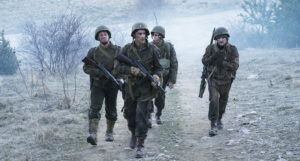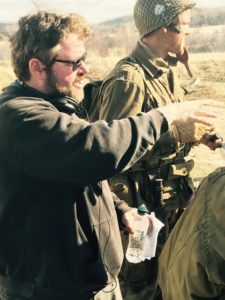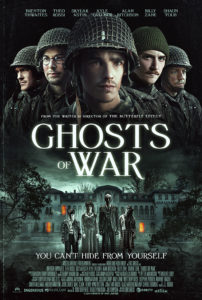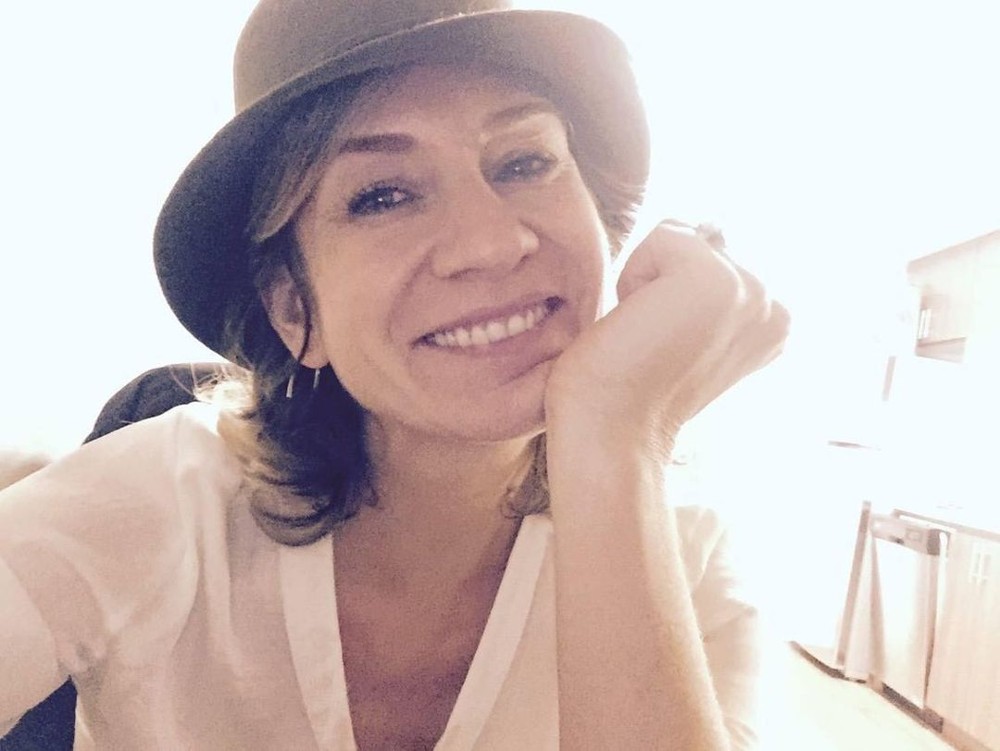Unsurprisingly, the co-creator of The Butterfly Effect was bound to deliver a unique, non-traditional film with his new offering, Ghosts of War. As its title suggests, Eric Bress’s new project concerns the conventional war movie; however, Bress merged that familiar cinematic category with a wholly unexpected element. “I knew when I first started out that I wanted to blend the war and horror genres,” he said, noting that the chilling scene in Platoon—with Charlie Sheen awaking in the woods at night in Vietnam—was fully inspirational. “That’s where the opening shot of this movie came from. War and horror are probably one and the same when living in them.”

To best combine genres, Bress knew he needed special treatment for his original screenplay. Written on his own for this outing, The Butterfly Effect was co-written and co-directed by J. Mackye Gruber. “There needed to be a dual layer for everything,” said Bress of Ghosts of War’s early drafts. “Introduce 10 pages of an ordinary day in the Private Ryan world. The cinematography and score would change suddenly—a bend in the road, genre wise. It had to be a setup to a different payoff; that’s where it got tricky. How does that lay in to the horror part?”
Unlike most original screenplays, which often go through a horde of incarnations, Bress’s essential concept in Ghosts of War was written exactly as it appeared on film. “Something that happened towards the end, happened right in the center of the story,” Bress described, not unveiling the narrative’s Easter Egg-like revelations. “It would continue in its current horror-like genre. We’re speaking a little cryptically.”

Ultimately, though comparisons to The Butterfly Effect were inevitable, Ghosts of War stands on its own, unlike virtually any other film in either the war or horror milieus. “You find yourself using some of the same tools,” Bress revealed of the writing process in both The Butterfly Effect and Ghosts of War. “There is a smear of events that are unfolding in front of us that relate to other events. As a writer, it was jumping back and forth; you change one thing over here, you change everything over there. There is even more power invested in the things we don’t yet see. I had to nail the core of it—in the writing, it all had to be there.”
Without question, the blurring of genre lines is an intricate business that must be rendered effectively for the audience, a point of trepidation for Bress. “That was a bit of a fear—what are people going to think when they see this?” he confessed, noting one character in particular as crucial to Ghosts of War’s secrets. “They are going to see someone appear that they know. Why would that even be there? Should there be a disguise, something that hides our actor’s identify even more? It means something if you are an astute film watcher—we want this to really have gravitas down the road.”
In his initial writing stage, Bress explained how his first draft was ‘crazy and rule-less,’ with an amalgamation of common horror movie tropes meant to lull the audience down a specific path. Alas, Bress soon surmised that definitive rules were mandated. “The process of the first draft may have been three months,” he delineated. “The process of revision happened almost to the last day of shooting. In pre-production, we boiled the script down to its main stew.”
 Years transpired before Bress revisited his Ghosts of War script and read it with fresh eyes. “The first draft is so different from the final shooting draft,” he recalled. “The third draft is the one that required the most work. Things need to be told that kept the audience interested; I had to shuffle the bits that played chronologically. We need to jump back and forth between two arenas, with one arena informing the next arena. There’s always another card to show.”
Years transpired before Bress revisited his Ghosts of War script and read it with fresh eyes. “The first draft is so different from the final shooting draft,” he recalled. “The third draft is the one that required the most work. Things need to be told that kept the audience interested; I had to shuffle the bits that played chronologically. We need to jump back and forth between two arenas, with one arena informing the next arena. There’s always another card to show.”
During principal photography in Bulgaria, which he noted was a ‘panic attack,’ Bress would continually rethink his screenplay. “I would slap my head, and say, ‘I don’t think this current iteration is the best way,’” he conveyed. “I would go back to the hotel and rewrite. I would bug the producers and actors: ‘I know it’s crazy I would come to you with four shooting days left. What do you think?’ A lot of 11th hour conversations.”
Given Ghosts of War’s singular plot machinations, Bress went into post-production open to his story’s numerous possibilities. “The very end leaves you in a place where the story is very complete, but at the same time, I have found a springboard from the ending of the film to a bigger sequel where the curtains open up to a much wider playground,” he detailed. “I went into this thinking like Butterfly Effect. But this is a sequel. Every clue is in there for the second timers or third—there is more closure the more times it’s watched.”
Ghosts of War can be viewed for purchase or rental on Amazon.





